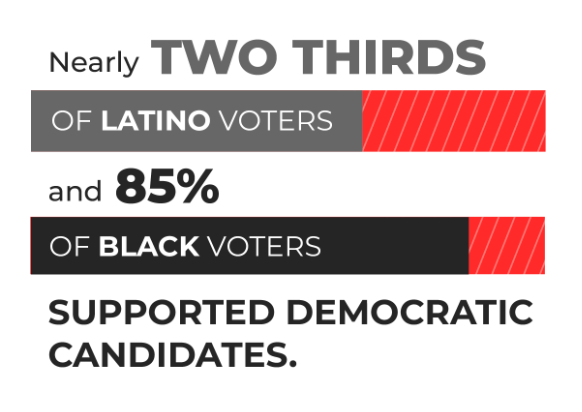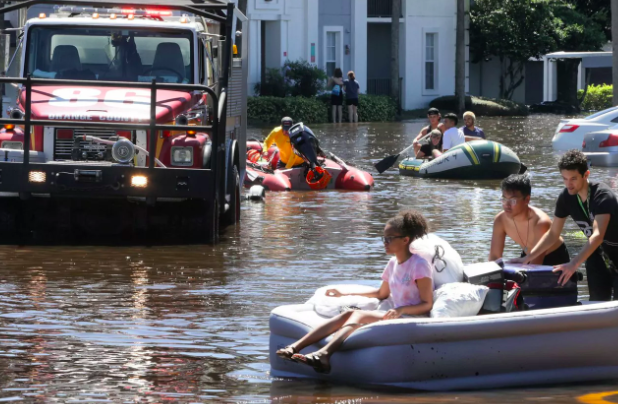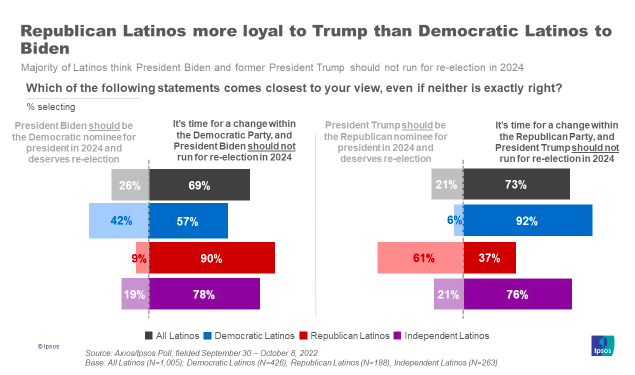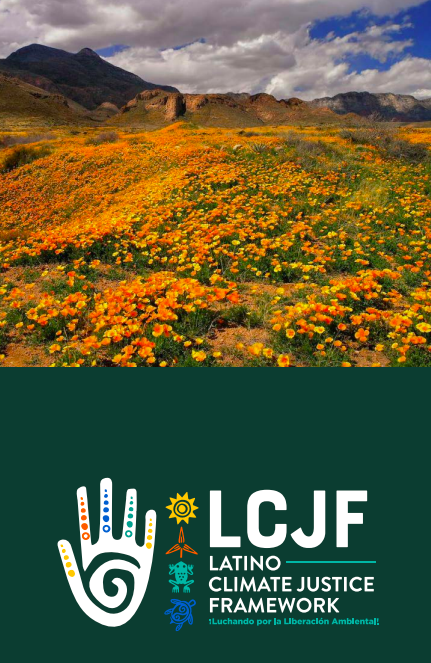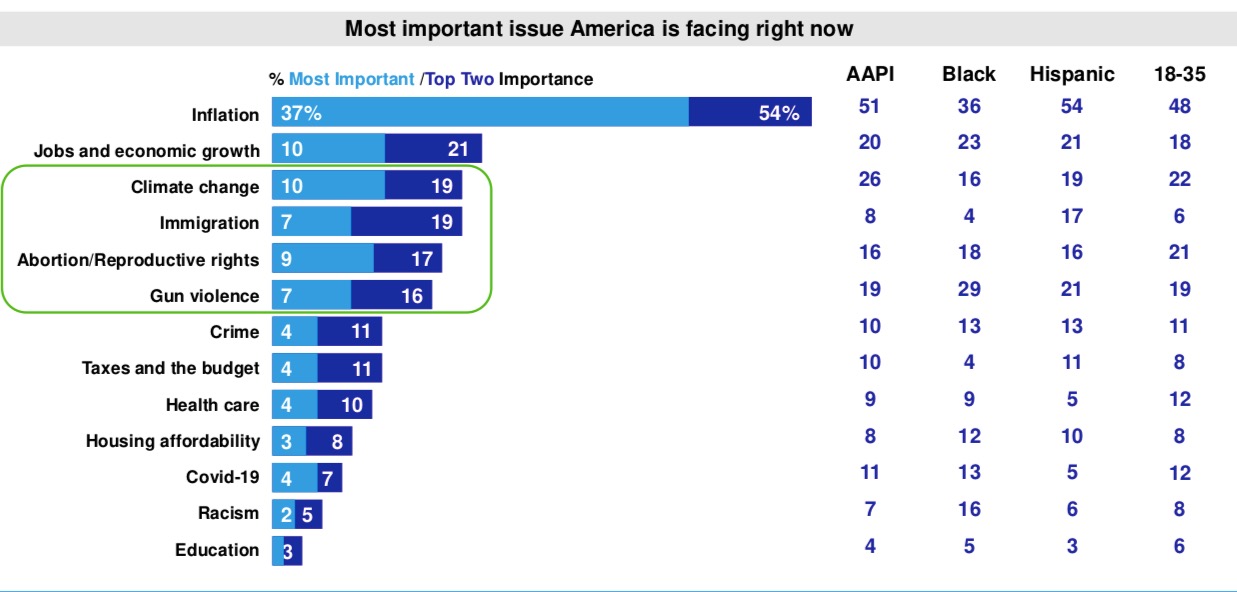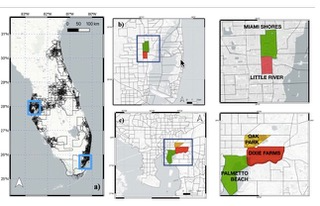Resources
Search below for resources covering the intersection of climate engagement, social science and data analytics.
RESULTS
The 2022 Midterm Voter Election Poll
Midterm voters of color are the most likely to view climate change as an “urgent problem” and to say that the Inflation Reduction Act was a motivating factor in their vote. 73% of midterm voters say they support the Inflation Reduction Act when it’s described as “the largest investment ever in clean energy in an effort to reduce toxic air and carbon pollution,” including 90% of Black voters and 83% of Latino voters. 62% of midterm voters say that climate change is an “urgent problem we must address now,” including 77% of Black voters and 68% of Latino voters.
Climate change among top concerns for Latinos ahead of midterms, poll finds
Climate change is among Latinos' leading concerns heading into the 2022 midterm elections. 25% of Latinos polled said it was one of the most worrying issues, up from the 18% who said the same in June. 38% said they believe the Democratic Party is good on climate and energy issues, while 10% said the same about the Republican Party. About 24% said neither party is good on the issues.
Environmental Polling Roundup - October 21st, 2022
This post includes climate and environment headlines, data points, and key takeaways from recent public polls - including new polls focusing on voters of color, young people, and Latinos.
Climate change ranks among the top issue priorities for Latinos, and the majority support the Inflation Reduction Act. Latinos support the Inflation Reduction Act by a 62%-32% margin after reading a brief description of it. More Latinos name climate change as one of the national issues that is “most worrying” to them than any other issue besides inflation, crime/gun violence, and immigration.
Latino Climate Justice Framework
Climate justice for Latino Americans means centering policies that achieve environmental, energy, and economic justice together. Latino/a/x households pay disproportionately high energy costs, low-income, Latino/a/x households and communities have so far been left behind in the transition to clean energy, and Latino/a/x workers need a pathway to clean energy jobs. Therefore, we need to invest with justice in clean energy, accelerate the transition to renewable energy (i.e., wind, solar, geothermal and small-scale hydropower), and advance economic equity and opportunity for Latino/a/x workers. This resource further details these problems and policy and political solutions, as related to transit, jobs, fossil fuel drilling, climate adaptation, clean water, voting rights, conservation, and more.
Harness climate concerns shared by people of color. This survey of people of color about their attitudes toward climate change reveal that they are paying close attention to the issue and are motivated to get involved with climate solutions. The results show that people of color feel a strong sense of urgency to tackle climate change and are overwhelmingly more likely to support political candidates who prioritize the issue.
Measuring, mapping, and anticipating climate gentrification in Florida: Miami and Tampa case studies
Recognize the disruptive potential of climate gentrification. This study looks at the current and potential impact of climate gentrification on low- and middle-income renters in Miami and Tampa, as areas away from the immediate coast become more desirable due to a growing awareness of climate risks. The authors have created a Climate Gentrification Risk Index to help local officials identify areas vulnerable to climate gentrification and plan for long-term land use changes.
Environmental Polling Roundup - September 30th, 2022
This post includes climate and environment headlines, data points, and key takeaways from recent public polls - including new polling on climate change and extreme weather, a new survey of climate attitudes among Spanish-speaking Latinos, and new polling about marine conservation.
Spanish-speaking Latinos in major Spanish markets are widely supportive of climate action, but are hearing misinformation about its economic impacts. The most prominent piece of disinformation that Spanish-speaking Latinos believe is that transitioning away from oil and gas will mean eliminating millions of jobs (57% mostly true or more true than false), followed by a concern over higher prices and inflation as a result of transitioning into clean energy (49%). The most common sources of climate disinformation among Spanish-speaking Latinos differ across age groups but are primarily online, not conservative TV channels like Fox News. Facebook is the most prominent source overall (46%), especially among Spanish-speaking Latinos over 30 years old (52%).
Key facts about U.S. Latinos for National Hispanic Heritage Month
The U.S. Hispanic population reached 62.5 million in 2021, up from 50.5 million in 2010. Hispanics have played a major role in driving U.S. population growth over the past decade. The number of Latinos who say they are multiracial has increased dramatically. People of Mexican origin accounted for nearly 60% (or about 37.2 million people) of the nation’s overall Hispanic population as of 2021. The fastest population growth among U.S. Latinos has come among those with origins in Venezuela, the Dominican Republic, Honduras and Guatemala. Hispanics have become the largest racial or ethnic group in California and Texas. Three states saw their Hispanic populations increase by more than 1 million from 2010 to 2021. North and South Dakota have seen the fastest rates of growth in their Hispanic populations since 2010. Newborns, rather than immigrants, have driven the recent growth of the U.S. Hispanic population. The share of Latinos in the U.S. who speak English proficiently is growing. The share of U.S. Hispanics with college experience has increased since 2010. Four in-five Latinos are U.S. citizens. The share of U.S. Latinos who are immigrants is on the decline and varies by origin group.
Pagination
- Previous page
- Page 2
- Next page
